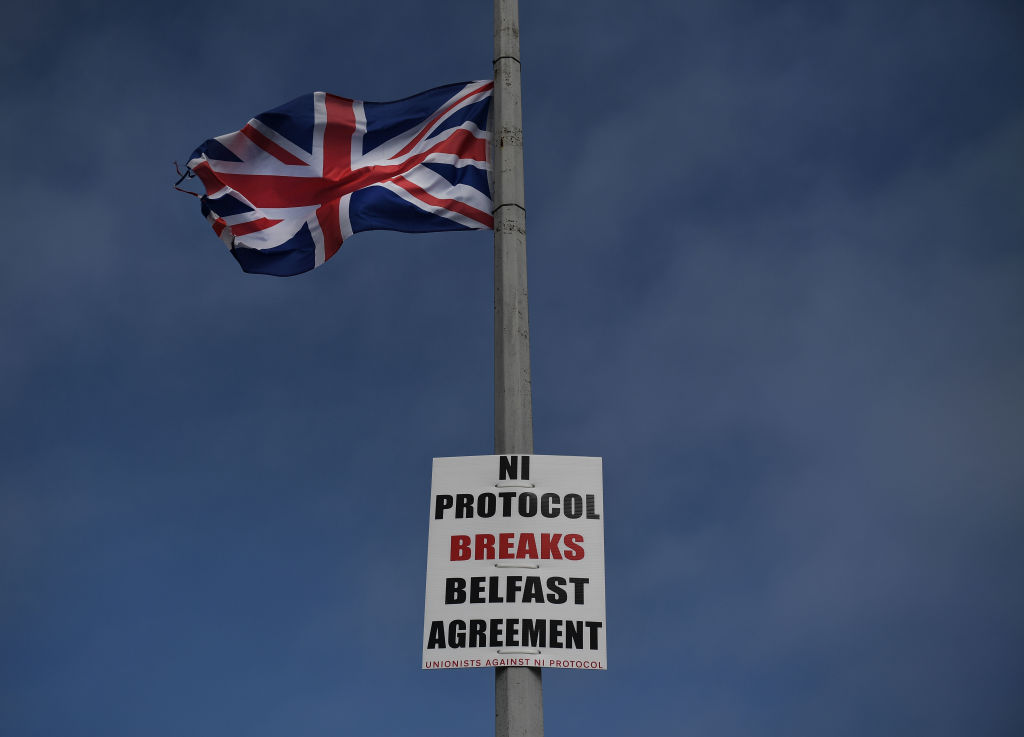A breakthrough in Northern Ireland will build bridges with businesses as well as in Europe

As Brexit continues to cause problems for businesses in Britain, finding a resolution with the EU over Northern Ireland would bring some harmony back to our shores, writes Richard Burge.
Britain’s business community has been desperate for a new relationship with the government since Boris Johnson famously thought Brexit would provide a de facto reset.
Johnson’s government behaved as if sovereignty exercised in the international arena was simply about imposing conditions unilaterally. In reality, nations interact through consensus, compromise, and making binding international agreements.
In completing Brexit, the UK agreed to the conditions of the Northern Ireland Protocol, which the UK’s business community knew would produce bureaucratic chaos and logistical headaches for commerce. Today, nearly two years on, the real threat of a UK-EU trade war casts a long shadow over Britain’s economy at the worst possible time.
Irish Taoiseach Leo Varadkar started the year with a belated gift to Rishi Sunak, a golden opportunity to solve the Northern Ireland Protocol issue. This would be a statement of intent to business leaders and a reason for hope amid a dashboard of otherwise depressing economic indicators.
Rishi Sunak swept into Downing Street with a promise to restore competence and trust in No10 and put the UK back on a path to prosperity. Resolving the dispute with the EU over the Northern Ireland Protocol would be an early win for the new PM, one emphatically applauded by UK businesses. Boris Johnson’s narcissism and Liz Truss’s zealotry made a workable solution on the Northern Ireland Protocol impossible. But in the more rational hands of Rishi Sunak, one can envision a path to an agreement.
It would be unconscionable for the government to let this opportunity slip. A failure to resolve the Protocol dispute risks three major blows to the UK at a time when we can least afford them.
First, there is every chance that a failure to reach an agreement on overhauling the NI Protocol results in a spiralling trade war with the European Union. Such an outcome would put 42 per cent of all UK exports at risk. Since the early days of the Covid-19 pandemic, British businesses have dealt with huge uncertainty, weighing down on investment. Indeed, the level of business investment in the UK remains well below what it was in December 2019. Investment decisions, growth plans, and hiring strategies would remain frozen by the chaos of a UK-EU trade dispute.
Second, much has been made by Conservatives of Britain’s so-called “soft power” and international influence. While the recent political and market turmoil will not have helped global perceptions of the UK, an escalation of the NI Protocol dispute that results in the UK breaking international law will be catastrophic for Britain’s global standing. This dispute has been going on for too long, without anyreal reward.
London’s position as a top-tier global city for business rests on Britain’s incorruptible courts and our reverence for the rule of law. That reputation – which many of our most high-value sectors like professional, financial, and legal services depend on – would be deeply damaged, possibly irreparably, should HM Government break international law. In the current geo-political turmoil, “my word is my bond” is a precious national commodity.
Finally, and most fundamental, a failure to resolve the NI Protocol impasse carries a very real risk of a return to political violence on the island of Ireland. Peace and security are the foundation on which prosperity is built. As we approach the 25th anniversary of the Good Friday agreement, we must remember that it stands as a testament to reconciliation, peace, and prosperity.
The Northern Ireland peace process was an archetype of mediation and peacebuilding. I have witnessed the alternative first hand. I have also witnessed the extraordinary power of reconciliation and forgiveness, and the positive impact that produces. In all those cases, the courage was not in regretting what might have happened in the past but imagining what could be in the future. Brexit has happened; the EU has changed as a consequence. There is (and never was) a pathway to return. We must focus on what a new relationship with the third largest economic market in the world could look like for both of us, to share that ambition, and trust each other to work with positive intent towards it.
For all the latest Lifestyle News Click Here
For the latest news and updates, follow us on Google News.

